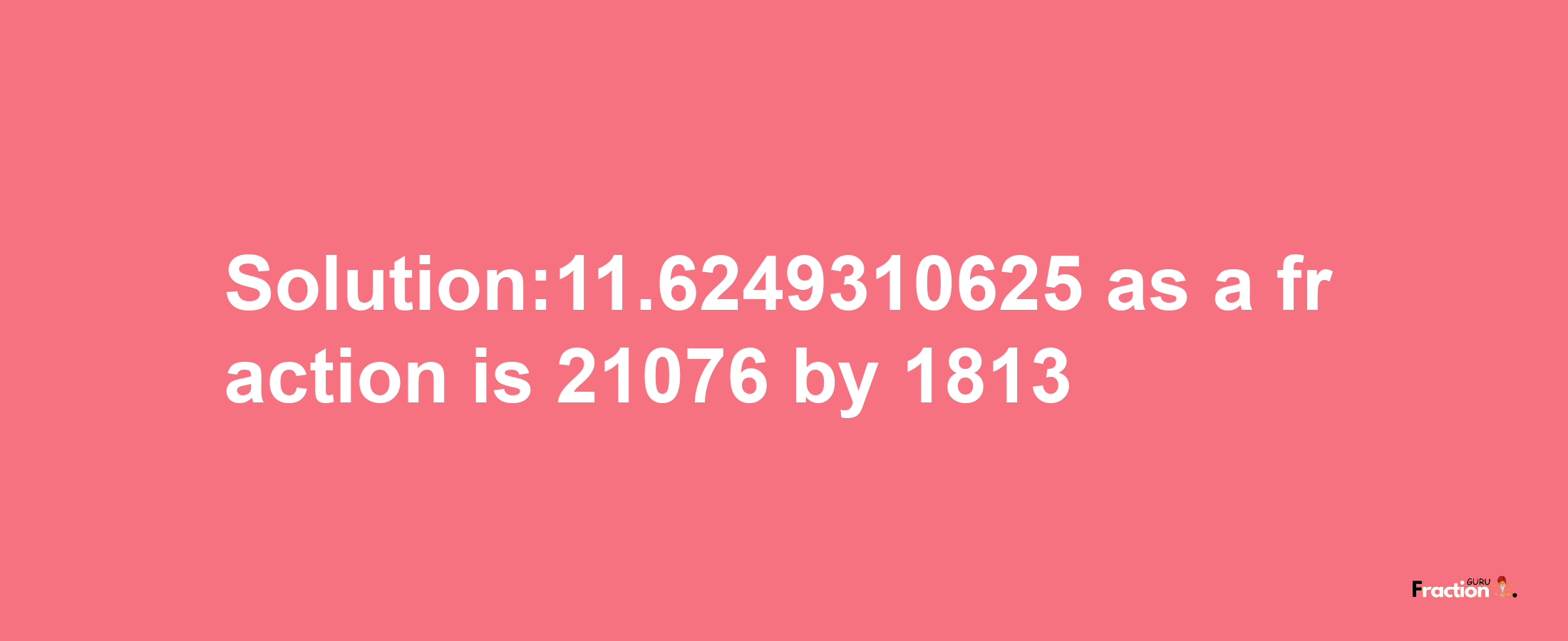Step 1:
The first step to converting 11.6249310625 to a fraction is to re-write 11.6249310625 in the form p/q where p and q are both positive integers. To start with, 11.6249310625 can be written as simply 11.6249310625/1 to technically be written as a fraction.
Step 2:
Next, we will count the number of fractional digits after the decimal point in 11.6249310625, which in this case is 10. For however many digits after the decimal point there are, we will multiply the numerator and denominator of 11.6249310625/1 each by 10 to the power of that many digits. So, in this case, we will multiply the numerator and denominator of 11.6249310625/1 each by 10000000000:
Step 3:
Now the last step is to simplify the fraction (if possible) by finding similar factors and cancelling them out, which leads to the following answer for 11.6249310625 as a fraction:
21076/1813 / 1


